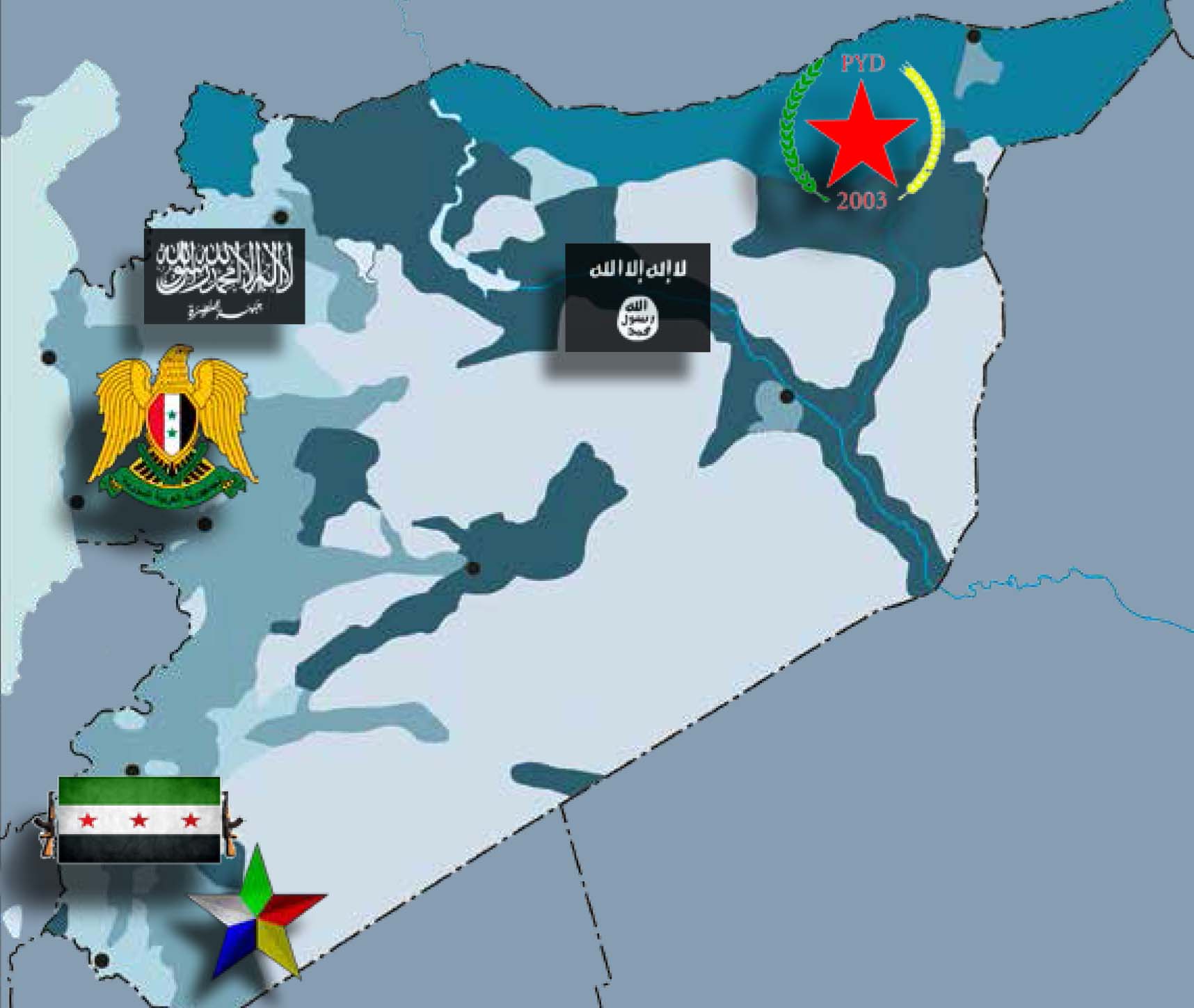Publications
Memorandum No. 156, Tel Aviv: Institute for National Security Studies, August 2016

Contents:
Executive Summary
Chapter 1: The Rise of the Non-State Actors in Syria
- Regional and Global Perspectives
- The Non-State Actors in Syria
- Israel’s Approach to the New Reality in Syria
Chapter 2: Mapping the Non-State Actors in Syria and their Attitudes toward Israel
- Salafi Jihadist Actors
- “Pragmatic” Actors
- Local Actors: Southern Syria
- Local Actors: The Kurdish and Druze Minorities
- Independent Initiatives by Syrian Opposition Activists
Chapter 3: Israel and the Actors in Syria
- The Toolbox and the Rules of the Game
- Limitations and Risks
- Opportunities for Cooperation
- Tactical Partnerships versus Strategic Partnerships
- Military Modes of Action
- Diplomatic Modes of Action
- The Economic Toolbox
- Humanitarian Activities
Conclusions and Recommendations
Appendix: Syrian Activists on Israel’s Role in the Crisis in Syria
- Personal Background
- Highlights of the Responses to the Questionnaire
Notes
EXECUTIVE SUMMARY
The civil war underway in Syria since a few months after the onset of the so-called Arab Spring has changed the face of the Middle East in general and the Syrian Arab Republic in particular, which until then was characterized by approximately four decades of relative stability. The Syrian war, which has killed nearly half a million people, is the greatest catastrophe to hit the Levant since the Armenian genocide. The crisis that erupted in March 2011 expanded within a short time, resulting in political shockwaves and a refugee crisis throughout the region. While Israel succeeded in isolating itself from the immediate effects of this crisis, the events unfolding in Syria have created new dilemmas, and call for Israel’s formulation of new policies in relation to the changing situation along its northern border. This memorandum aims to describe Israel’s process of policymaking in the Syrian context, analyze its current effectiveness, and suggest some alternative thinking that addresses the changing realities in the southern part of Syria and the new opportunities for engagement.
The memorandum maps the diverse actors operating in Syria today, primarily the non-state actors, analyzing their respective positions toward Israel, surveying their interactions with Israel during the civil war, and urging a more proactive Israeli policy toward them. The study also proposes modes of action aimed at formulating a new Israeli strategy vis-à-vis the changing Syrian arena in general and southern Syria in particular. In doing so, it focuses on what we define as “positive” actors, including a number of Sunni groups and the Druze and Kurdish minorities, which are currently emerging as the candidates with the best potential for cooperation with Israel. The study devotes less attention to actors that espouse pro-Iranian or Salafi jihadist and Islamist views and therefore have a lower potential for cooperation with Israel, such as the Islamic State, the Nusra Front, Ahrar ash-Sham, Hezbollah, and the Alawite ruling minority.
According to the recommendations of this memorandum, Israel should strive to translate its policy of non-intervention in the war in Syria into one of active promotion of relations and engagement with more “positive” Syrian actors, as well as with regional and international actors with whom it shares similar interests. These actors wield influence in the current reality in Syria, and can be expected to play a significant role in the shaping and stabilizing of the country in any post-war reality. These realities may include the fall of the Assad regime as well the establishment of new state entities such as a pro-Iranian Alawite enclave, a sovereign recognized Kurdish autonomy, or an autonomous region in southern Syria. Israel would do well to consider the possibility of adopting, in coordination and cooperation with these actors, a more proactive policy vis-à-vis the Syrian arena that will offer it viable short term and long term objectives. Such a policy should be part of a comprehensive strategy that enables Israel to build effective levers of influence in the Syrian arena, establish a degree of influence in southern Syria, and promote its own tactical and strategic interests – first and foremost, maintaining calm in the Golan Heights and preventing “negative” actors from establishing themselves in the Syrian-controlled part of this region.


